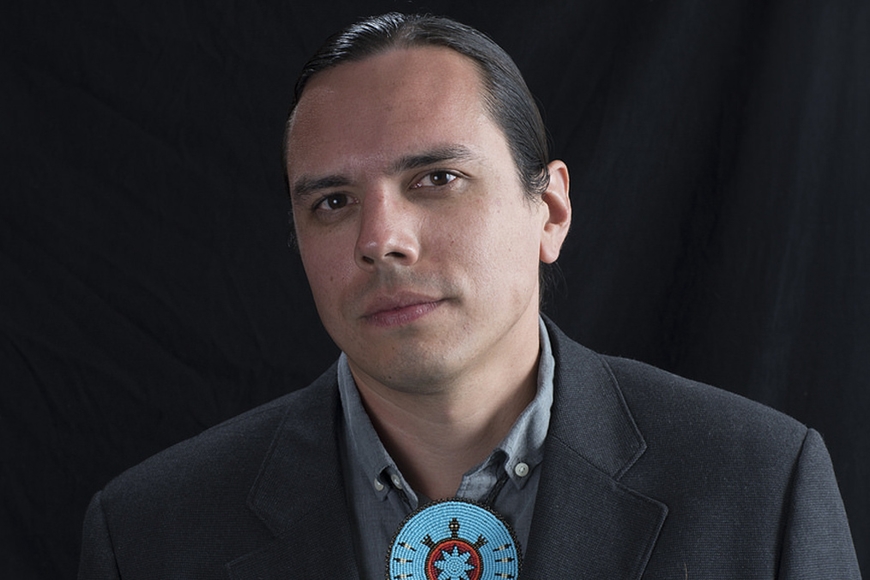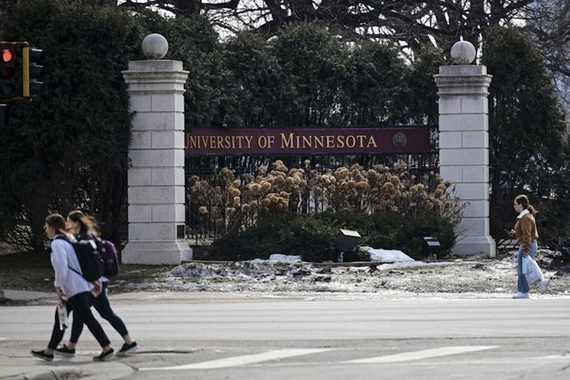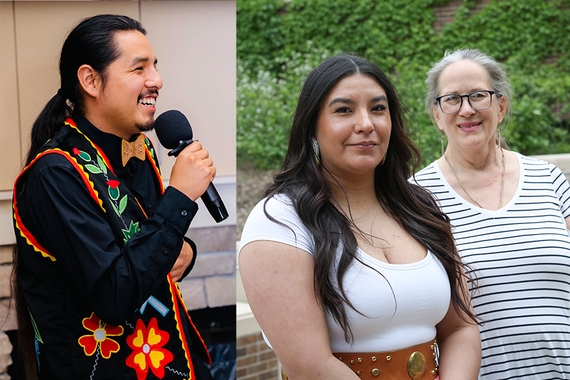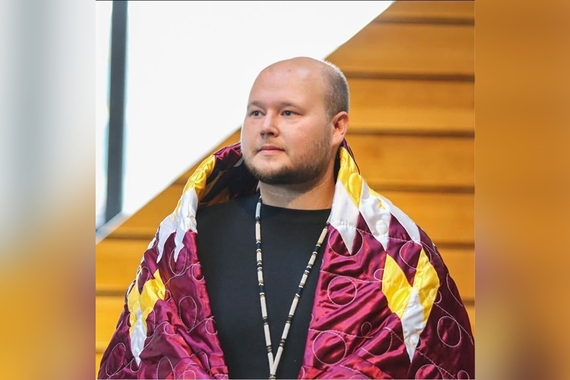Nick Estes: Land, Law, and Learning
As a new assistant professor in the Department of American Indian Studies, Nick Estes aims to demonstrate the autonomy of his discipline and further enrich its intellectual tradition. His work incorporates law, policy, social justice, and oral history to think critically about the colonial contexts that shape the experiences of Indigenous peoples in the US. Estes speaks about what sparked his specialized interests and studies, the course he is teaching this spring, and his work in the community.
What role do you have at the University of Minnesota? What brought you here?
The University of Minnesota has the oldest American Indian studies department in the United States. I joined the department as an assistant professor because of its longstanding commitment to the field and because UMN is within the territories of the Oceti Sakowin, and is therefore in a unique position to serve Indigenous nations and students.
What are your areas of specialty?
My research and teaching focuses on Oceti Sakowin studies, federal Indian law and policy, Indigenous internationalism, environmental and social justice, US settler colonialism and imperialism, and Indigenous oral histories.
How did you become interested in what you study and teach?
A series of earthen-rolled dams flooded Lakota and Dakota homelands along the Mni Sose (Missouri River) in the mid-twentieth century, displacing about a third of reservation-based populations and forever destroying our lifeways in the river bottomlands. The project was called the Pick-Sloan Plan, which worked in tandem with federal Indian policy of termination and relocation. The history of twentieth-century Indigenous land dispossession inspired me to think critically about how much federal policy shaped the life of my family from the Lower Brule Sioux Tribe, where I'm enrolled.
That research created the backdrop for understanding modern struggles over Mni Sose and water within Oceti Sakowin territory, such as the movement led by the Standing Rock Sioux Tribe against the Dakota Access Pipeline in 2016. I published two books: Our History Is the Future: Standing Rock versus the Dakota Access Pipeline, and the Long Tradition of Indigenous Resistance (Verso, 2019) and Standing with Standing Rock: Voices of the #NoDAPL Movement (University of Minnesota Press, 2019), which was co-edited with Jaskiran Dhillon.
What courses are you currently teaching or looking forward to teaching soon? What's special about them?
For the spring 2023 semester, I'm teaching AMIN 4501 Law, Sovereignty, and Treaty Rights. My approach in this course is to place Indigenous diplomacy, treaty making, and sovereignty as existing prior to and alongside colonizing nations like the United States. In this course, we will also put Indigenous treaties and legal frameworks within domestic and international colonial contexts.
What are some of the big takeaways students will get from your courses?
My goal is to show that American Indian studies is a stand-alone discipline. Much like the disciplines of history or economics, one can interpret the world from a certain vantage point using certain research methodologies to answer pressing questions facing society that are developed within their respective fields. American Indian studies is no different.
The topics I teach, such as Indigenous treaties, for example, are not just problems facing Indigenous people. The United States and its citizens have a constitutional obligation to uphold their international agreements with sovereign Indigenous nations. That perspective tells a much more robust story about the political authority of Indigenous nations historically and presently.
What are you most excited about right now?
Across Turtle Island, there is a growing interest in American Indian and Indigenous studies. It's amazing to see the growth of the field, especially the cutting-edge research coming from graduate students. UMN has a unique opportunity to expand its support and further cultivate the intellectual tradition of the oldest American Indian studies department in the United States, especially in relation to the land upon which the institution sits: Mni Sota Makoce.
Are you involved with any community-engaged projects/courses? Who are you partnering with and what are you learning and doing?
I'm currently the lead editor for Red Media, an Indigenous-run community media project that publishes books, podcasts, and video documentaries. We're working with the Oceti Sakowin Writers Society (formerly the Oak Lake Writers' Society) to publish books by community-based writers and have created a podcast series about the Oceti Sakowin literary tradition. Red Media podcasts have been taught in high school and college classrooms and have received recognition from The New York Times, CNN, and Al-Jazeera.



